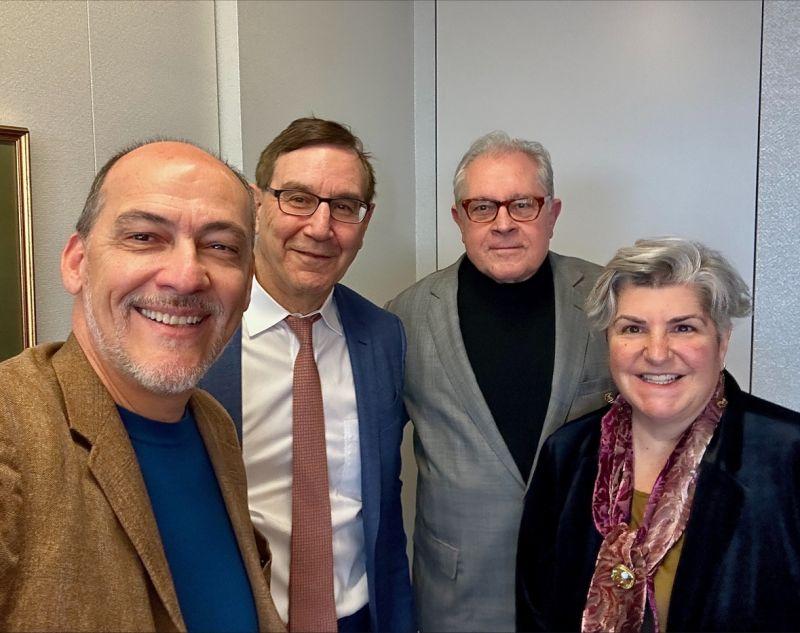I had a coffee yesterday with Dr. James Madara, CEO of the American Medical Association in Chicago. I met him more than a decade ago at a dinner at my parents’ home when he had just started at the AMA after a successful term heading the University of Chicago Medical Center.
Dr. Madara and I spoke at length about the epidemic of chronic disease. It will surprise you to learn that the number one killer in America is hypertension. There are fifty million Americans who go untreated and are therefore uncontrolled. “Nobody measures blood pressure in the right way. You need to relax for ten minutes before your BP is taken. You are not to speak with anybody. You should have back support. The cuff should be on your skin. You must have an empty bladder.” It is also essential to take several proven steps to get an accurate reading.
He is convinced that the U.S. can get a one third decline in stroke and cardiac arrest with proper identification and treatment of hypertensive patients. This will take a significant investment in primary care MDs in lower income neighborhoods, like the AMA MAP™ Hypertension program on the West Side in Chicago, which is intended to ensure access to doctors and facilitate check-ups.
Dr. Madara also finds real opportunity in mental health and diabetes care. The AMA has a behavioral health initiative that aims to reverse the huge rise in mental health challenges for teens. The launch of weight loss drugs is a way to reframe the patient-doctor conversation on diabetes, so that care is applied before there is risk of losing a leg or other drastic intervention.
There is more to be done in removing barriers for MDs seeing patients. For example, a recent time and motion study by the AMA found that the average MD spends twice as much time on administration and paperwork as seeing patients. Part of this is pre-approval of procedures. There are 39 pre-authorizations each week for the average MD, taking 16 hours per week.
Medicine has been diminished by the controversy surrounding the health protocols adopted during the pandemic. Health has become a political issue, around reproductive care or transgender rights. The irony is that MDs were our heroes in the early phase of the pandemic. They would work double shifts in hospitals. Desperately short of PPE, they would find ways to protect themselves from COVID-19 by fashioning gowns out of plastic garbage bags. As trust has moved local, to my MD and my pharmacist, there is an opportunity to change the trajectory of American health by enabling more one-on-one time and daring to set ambitious goals for a new level of wellness for our citizens.
Richard Edelman is CEO.








